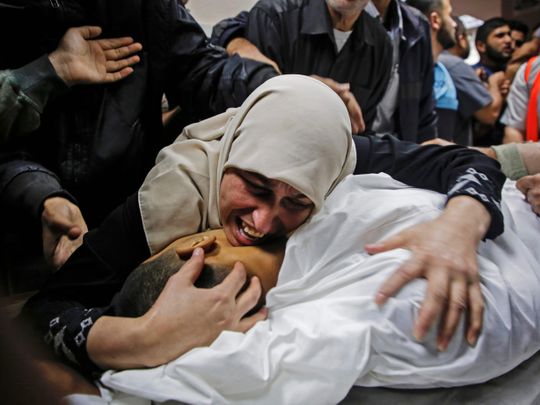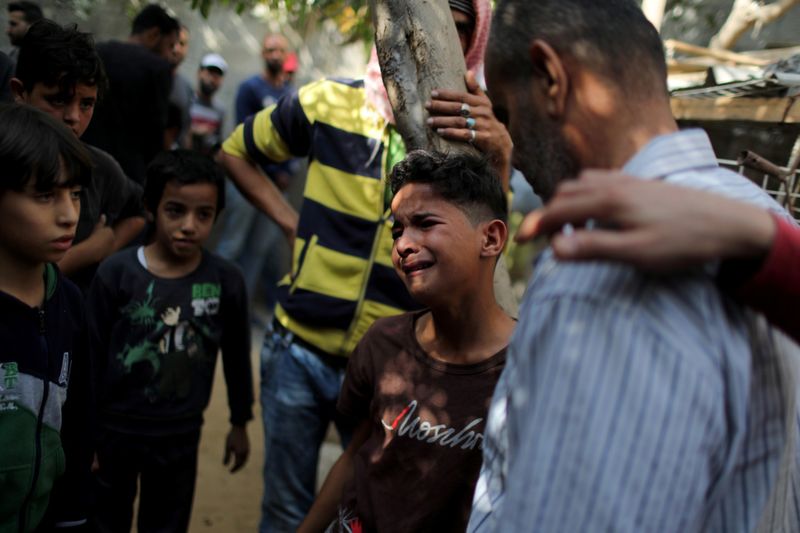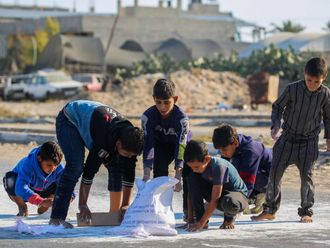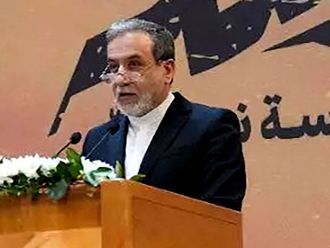
Gaza Strip: Israeli regime air strikes killed more Islamic Jihad fighters in Gaza on Wednesday as rocket fire towards Israel resumed after a brief overnight lull, raising the death toll in the strip to 16 Palestinians in the heaviest round of Israeli regime attacks in months.
The Israeli occupation regime said more than 250 rockets have been fired at Israeli communities since the violence erupted following an Israeli air strike that killed a senior Islamic Jihad commander accused of being the mastermind of recent attacks. Israel has stepped up its battle against Iran and its proxies across the region.
The latest fighting brought life in much of Israel to a standstill. Schools remained closed in Israeli communities near the Gaza border and restrictions on public gatherings continued as rockets rained down - albeit in lesser ferocity than during the relentless barrage the previous day.
Those attacks came after the early morning strike on Tuesday killed Bahaa Abu Al Atta and his wife as they were sleeping. Rocket fire from Gaza reached as far north as Tel Aviv, and two people were wounded by debris.
In a sign that the current round could be brief, Gaza’s Hamas rulers have yet to enter the fray. Although larger and more powerful than the Iranian-backed Islamic Jihad, Hamas is also more pragmatic. With Gaza’s economy in tatters, it appears to have little desire for another round of fighting with Israel.
Some opposition figures suggested the timing could not be divorced from the political reality in Israel, where Netanyahu leads a caretaker government after two inconclusive elections and his chief challenger, former military chief Benny Gantz, is currently trying to build a coalition government of his own.
Gantz said he had been briefed on the air strike in advance, calling it “the right decision,” and Netanyahu updated his rival on developments later Tuesday, according to the prime minister’s office. But a successful military operation could bolster Netanyahu as he seeks to hold onto power - especially if he is indicted on corruption charges.

Israel’s attorney general is expected to make a decision in the coming weeks, and an indictment would increase pressure on Netanyahu to step aside.
Egypt, which frequently mediates between Israel and Gaza militants, has been working to de-escalate tensions, according to officials in Cairo. The Islamic Jihad rejected the efforts, with spokesman Musab Al Berim saying the group’s priority is to “respond to the crime and confront the Israeli aggression.”
The Israeli occupation regime has restricted its operations to Islamic Jihad, and nearly all the Gaza casualties so far have been members of the group.
The occupation regime’s new defence minister said Israel would not hesitate to carry out additional targeted killings against those who threaten it. “This morning, we sent a clear message to all our enemies,” he said in his first comments as defence chief. “Whoever plans to harm us during the day, will never be safe to make it through the night.”
Bennett took office Tuesday amid the outburst of fighting. Prime Minister Benjamin Netanyahu appointed him to fortify his hard-line political base as he clings to office after two inconclusive elections. Bennett has long advocated tougher action against Palestinian fighters but wasn’t part of the plans to strike Abu Al Atta.
No Israeli deaths have been caused by the rockets attacks, mostly thanks to Israel’s Iron Dome defence system, which intercepted some 90 per cent of the projectiles. A few homes suffered direct strikes, though, and there was a near miss on a major highway, where a rocket crashed down just after a vehicle had passed.
In Gaza, the Islamic Jihad said 38-year-old Khaled Faraj, a brigade commander, was killed early Wednesday along with another fighter from the group’s Quds radio network. Four others were killed in an air strike, including a father and two sons. Their identities were unclear.
Along with Tuesday’s pre-dawn strike in Gaza on Tuesday, another strike attributed to Israel targeted a senior Islamic Jihad commander based in Syria. The strikes appeared to be a new surge in the open warfare between Israel and Iranian proxies in the region.
Iran has forces based in Syria, Israel’s northern neighbour, and supports Hezbollah militants in Lebanon. In Gaza, it supplies Islamic Jihad with cash, weapons and expertise.
Netanyahu has also claimed Iran is using Iraq and far-off Yemen, where Tehran supports Al Houthi rebels at war with a Saudi-led coalition backing the government, to plan attacks against Israel. Hamas also receives some support from Iran.
Israel frequently strikes Iranian interests in Syria but Tuesday’s attack in Damascus appeared to be a rare assassination attempt of a Palestinian militant in the Syrian capital.
Some opposition figures suggested the timing could not be divorced from the political reality in Israel, where Netanyahu leads a caretaker government after two inconclusive elections and his chief challenger, former military chief Benny Gantz, is currently trying to build a coalition government of his own.
Gantz said he had been briefed on the air strike in advance, calling it “the right decision,” and Netanyahu updated his rival on developments later Tuesday, according to the prime minister’s office. But a successful military operation could bolster Netanyahu as he seeks to hold onto power - especially if he is indicted on corruption charges.
Israel’s attorney general is expected to make a decision in the coming weeks, and an indictment would increase pressure on Netanyahu to step aside. Netanyahu has sought to portray himself as the leader best capable of steering the country through its many security challenges.











